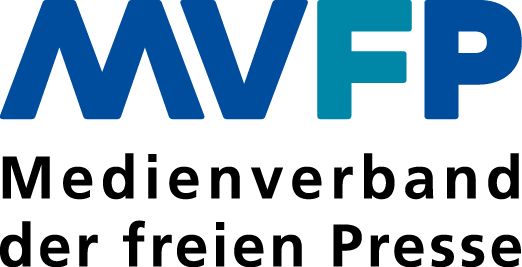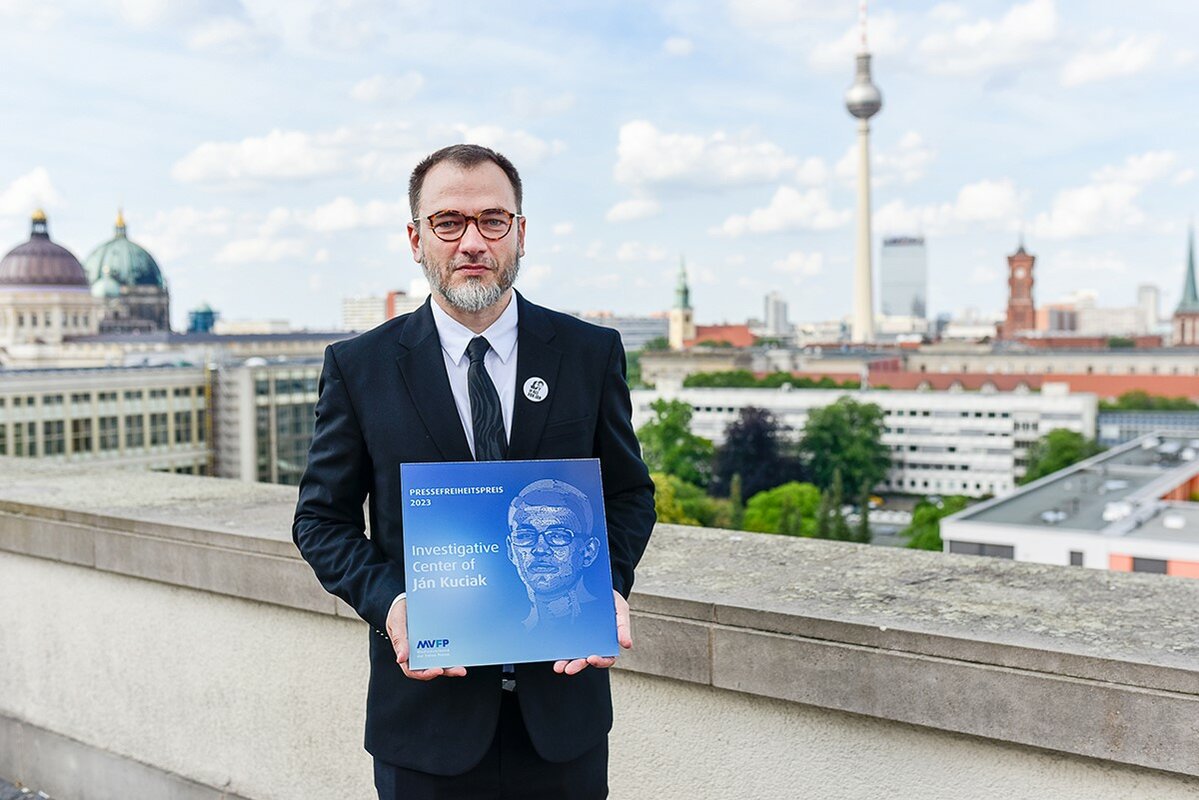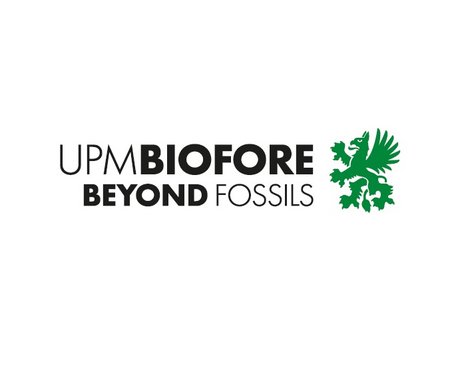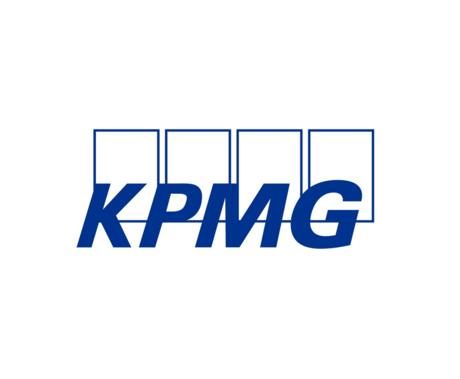„Press freedom brings truth. Truth is freedom“
PRINT&more | You have been working for the ICJK since 2020 as editor in chief and since 2021 as chairman. What is your relationship to investigative journalism?
Lukáš Diko | I have been in journalism more than 23 years. From the beginning, I admired famous “Washington Post” reporters like Bob Woodward and Carl Bernstein, who uncovered the Watergate scandal in the 70s. With this classical example of the best investigative journalism in mind, I have been interested in investigative stories from the beginning of my journalistic career. I couldn’t continue in my passion when I was in a management position as an editor in chief for the news Slovakia’s most popular private TV station and as a news director of public TV. But after I left these positions and the horrible murder of Ján Kuciak and his fiancée Martina Kušnírová was committed, I decided to fully commit myself to investigative journalism. So since almost four years my main focus has been on investigative journalism.
ICJK is the first non-profit organisation in Slovakia focusing on investigative journalism and continuing Ján Kuciak’s work. What exactly does your work consist of?
ICJK is a non-profit organisation with the main aim to preserve the legacy and work of Ján Kuciak. Therefore, our main scope is in investigations, uncovering corruption, financial, environmental and other types of crimes, foreign disinformation and propaganda, as well as other important topics. We have been involved in a number of cross-border investigative projects, e.g. Russian Asset Tracker, Hungarian Money, etc. In cooperation with the Organized Crime and Corruption Reporting Project (OCCRP), especially thanks to my colleagues – Ján’s friend Pavla Holcová from the Czech centre investigace.cz and my predecessor at ICJK Arpad Soltesz –, ICJK started a project called “Kocner’s” library. Based on the whole le of the investigation of Ján’s and Martina’s murder, the group of investigative journalists from almost all the Slovak media uncovered a lot of cases of high level corruption and unlawful actions. We also decided to launch a project for the monitoring of attacks against the journalists and protection mechanism. And as Ján Kuciak was a passionate university teacher, we have been also involved in lectures of investigative journalism as well as training programmes that would help to enlarge the small group of investigative journalists in Slovakia.
Does the ICJK have any future plans you would like to share with us?
There is a quote by Woody Allen: “If you want to make God laugh, tell him about your plans.” At ICJK, we want to continue in our effort to preserve Ján’s legacy by patiently continuing our investigations, our efforts for the better protection of journalists, teaching new possible investigative journalists and fighting for freedom of the press. We want to do everything possible so that Ján and Martina will ever be forgotten. In short-term vision of coming years, I would be happy if we could enlarge our team in ICJK, uncover more hidden stories, participate in further domestic and international investigations. I would be also happy if we can protect more journalists by enlarging safety trainings and providing psychosocial support.
What kind of support do you receive from outside?
As a civic non-governmental organisation, ICJK depends on the society and its support. We felt the support of the investigative journalism in general after Ján’s and Martina’s murder. But the support started to decline. We still feel the support by individuals in Slovakia not only in their financial donations but also in supporting emails we receive. As it is crucial for us to retain ICJK’s independence, it is also important that we have support from abroad. ICJK is a member of OCCRP, which supports its members. We also receive grant support from international organisations, foundations, embassies, and other donors. And then there are very positive surprises such as the MVFP Press Freedom Award which we have received this year to which a donation was connected and for which we are very grateful.
How would you describe the current situation regarding the freedom of the press in Slovakia?
Slovakia is in 17th place in RSF World press freedom index, which is very positive. And even though Ján was murdered due to his journalistic work, the state of press freedom in Slovakia is good compared to our neighbours in Poland and especially in Hungary. But the situation is very fragile and with the upcoming early elections it could deteriorate rapidly depending on the next government coalition. Some politicians and parties are attacking and threatening journalists regularly. There is also a large group of people affected by politicians who are hostile towards journalists especially online and on social networks, but also in person. And in addition to that, according to surveys more than 50% of the Slovak society believes hoaxes and disinformation. We feel the lack of investigative journalists, as by our estimations there are around only ten real investigative journalists in Slovakia.
What does freedom of the press mean to you personally?
For me press freedom is one of the most important values. But recently, with the rise of social media and AI, it is being downplayed, even though it should have been promoted more than ever in the history of mankind. Press frees people and societies. It brings the truth, and truth is freedom. And as I said in my MVFP Press Freedom Award acceptance speech: “With truth it is like with rising kids. We repeat to our kids what we feel could help them. About the moral values but also ordinary things. We repeat them thousands of times. And one day it will pay off. With truth it is the same, we uncover the truth everyday for our societies not to be lost in the mud of lies. It is a never-ending mission and we hope that one day it will pay off. And it definitely will.”
Where do you take your strength from, what drives you to continue your (risky) job?
For me being a journalist is a passion to look for the truth, to uncover new things and to deliver our findings to the public. Responsible journalists do not write stories for their egos, but for the public that needs truthful information. But I must be also practical, so it is important to stress that we do not underestimate the safety risks and analyse it with every story. There were four murders of investigative journalists in Europe in recent years: Ján Kuciak, Daphne Caruana Galizia in Malta, Peter R. de Vries in the Netherlands and Giorgos Karaivaz in Greece. All four murders show that there are people willing to stop investigative journalists in their work by murders. But this will never work.
What significance does the connection to the MVFP have for you?
First, I would like to say that we at ICJK are very grateful for the award and the awareness that it brings to Ján’s case and his legacy. It is very important not only for us at ICJK, but in the first place for the families of Ján and Martina. In Berlin, at the award ceremony and during the MVFP congress I have discussed a number of important topics with participants including distinguished MVFP members. I realised that the support of such a respected and strong partner as MVFP definitely opened ICJK a door to a completely new world. We as a journalistic community, can share experience of so many respected German media outlets and that could be of a benefit for all of us. Europe is diverse but we share the same threats to the press freedom and to the media industry. Closer cooperation and communication can help us to overcome common threats.





